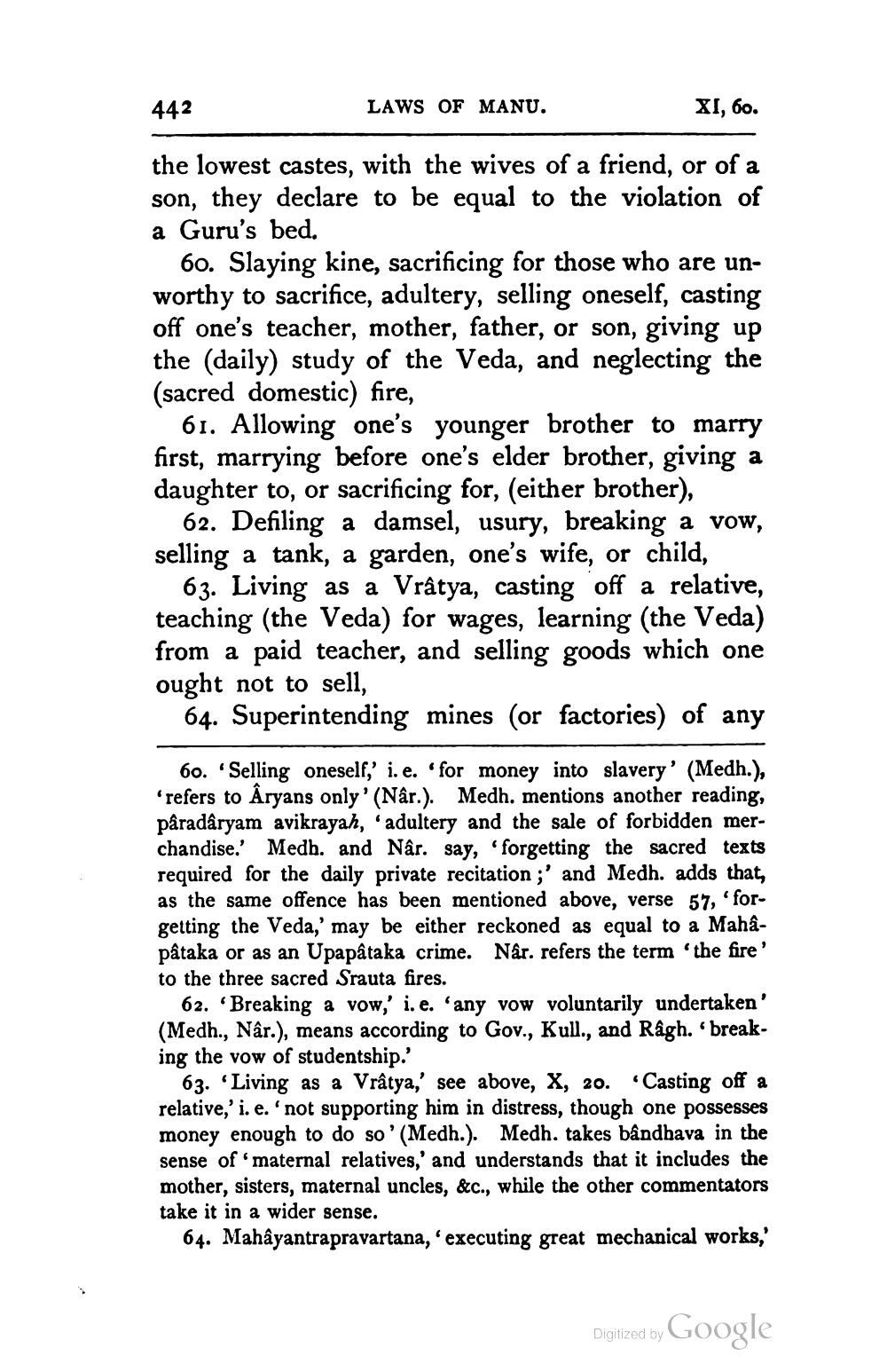________________
442
LAWS OF MANU.
XI, 60.
the lowest castes, with the wives of a friend, or of a son, they declare to be equal to the violation of a Guru's bed.
60. Slaying kine, sacrificing for those who are unworthy to sacrifice, adultery, selling oneself, casting off one's teacher, mother, father, or son, giving up the (daily) study of the Veda, and neglecting the (sacred domestic) fire,
61. Allowing one's younger brother to marry first, marrying before one's elder brother, giving a daughter to, or sacrificing for, (either brother),
62. Defiling a damsel, usury, breaking a vow, selling a tank, a garden, one's wife, or child,
63. Living as a Vrâtya, casting off a relative, teaching (the Veda) for wages, learning (the Veda) from a paid teacher, and selling goods which one ought not to sell,
64. Superintending mines (or factories) of any
60. Selling oneself,' i. e. for money into slavery' (Medh.), ' refers to Aryans only' (Nâr.). Medh. mentions another reading, pâradâryam avikrayah, 'adultery and the sale of forbidden merchandise.' Medh. and Nâr. say, 'forgetting the sacred texts required for the daily private recitation ;' and Medh. adds that, as the same offence has been mentioned above, verse 57, 'forgetting the Veda,' may be either reckoned as equal to a Mahâpâtaka or as an Upapataka crime. Når. refers the term 'the fire' to the three sacred Srauta fires.
62. Breaking a vow,' i.e. 'any vow voluntarily undertaken' (Medh., Nâr.), means according to Gov., Kull., and Ragh. 'breaking the vow of studentship.
63. Living as a Vrâtya,' see above, X, 20. “Casting off a relative,' i. e. not supporting him in distress, though one possesses money enough to do so '(Medh.). Medh. takes bândbava in the sense of maternal relatives,' and understands that it includes the mother, sisters, maternal uncles, &c., while the other commentators take it in a wider sense.
64. Mahâyantrapravartana,' executing great mechanical works,'
Digitized by Google




